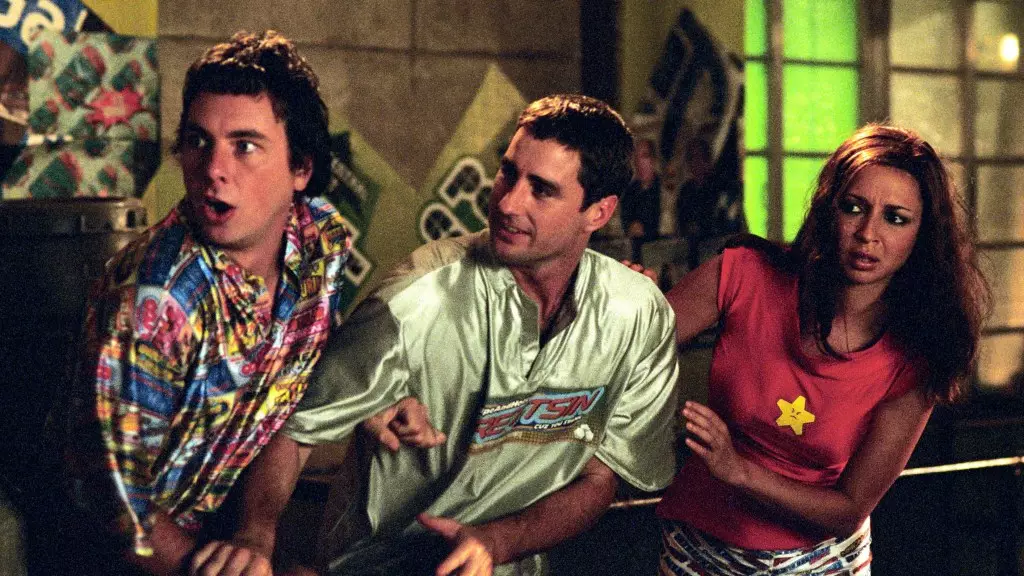In the realm of cinema, certain films endure far beyond their expected lifecycles, surprising both audiences and their creators. One such movie is “Idiocracy,” released in 2005, which has morphed from a box office disappointment into a cult classic with a fervent following. The satirical comedy’s exploration of societal decline, driven by a dramatic decrease in intelligence over centuries, strikes a visceral chord in today’s political climate, prompting discussions that reveal its unsettling prescience. Luke Wilson, who starred in the film, reflected on its unexpected journey, demonstrating just how much it resonates with current events and the cultural zeitgeist.
When “Idiocracy” first hit theaters, it was a financial flop, garnering only a meager $495,652 amidst a lackluster release strategy by 20th Century Fox. Wilson recalls the moment when he learned about the studio’s decision to minimize the film’s exposure; he vividly remembers reading a small advertisement in the Los Angeles Times that listed only three theaters showing the film. This early judgment by the studio led many to overlook a project that would later unveil its layered humor and commentary on society. It took years for audiences to rediscover the film, and the advent of social media has helped elevate its status as a significant cultural artifact.
The film’s humor was rooted in an absurd premise—two individuals, played by Wilson and Maya Rudolph, wake up 500 years in the future to find a world where stupidity reigns supreme. Wilson’s character, Private Joe Bowers, emerges as the most intelligent person alive, a notion both ludicrous and eerily reflective of today’s concerns about anti-intellectualism. As people navigate a landscape increasingly dominated by misinformation and questionable leadership, the film’s dark satire resonates, prompting viewers to evaluate their reality amidst its comedic façade.
The enduring legacy of “Idiocracy” has sparked conversations about a potential sequel, with Wilson revealing his ongoing efforts to convince writer-director Mike Judge to revisit the story. He envisions a scenario where he reunites with the beloved character of President Camacho, played by Terry Crews, as well as Dax Shepard’s character, further exploring their trajectories in this dystopian narrative. Wilson openly shares his enthusiasm with the director, pitching ideas that would see these figures navigate their absurd reality upon being pulled back into the contemporary world.
The fact that Wilson feels compelled to advocate for a sequel tells us not only about the film’s impact on him personally but also highlights its relevance in a world that appears to mirror the absurdities depicted in the original. It’s this unique disconnect—where life begins to imitate art in increasingly inexplicable ways—that fuels the interest in further exploring the themes established in the film.
Societal Reflections and Political Commentary
“Idiocracy” serves as a lens through which viewers can examine contemporary issues head-on, particularly the political landscape. The character of President Camacho, with his brash demeanor and outlandish policies, has drawn eerie comparisons to various real-life figures, illustrating how the film satirizes societal trends rather than merely fabricating a fictive narrative. This has opened up dialogues about political engagement and the importance of critical thought in an age where sensationalism often drowns out substance.
Luke Wilson himself has found that audiences frequently reference “Idiocracy” during election cycles or moments of political turmoil. He describes the film as “the biggest surprise” of his career, embodying a sentiment shared among many cast and crew members who underestimated its potential impact. Yet there lies a paradox: a future where society appears to have embraced the film’s themes unwittingly, suggesting that art may not just reflect reality but indeed can foreshadow dire possibilities.
In retrospect, “Idiocracy” has become much more than a mere comedy; it has evolved into an essential cultural touchstone that eloquently critiques our current trajectory. The potential for a sequel not only highlights Wilson’s commitment to revisiting the narrative but also underscores the enduring power of the film’s themes. As society grapples with the ramifications of rising ignorance and the consequences of disengagement, “Idiocracy” stands as both a cautionary tale and a source of humor, reminding us that sometimes laughter is the best way to confront our fears.

